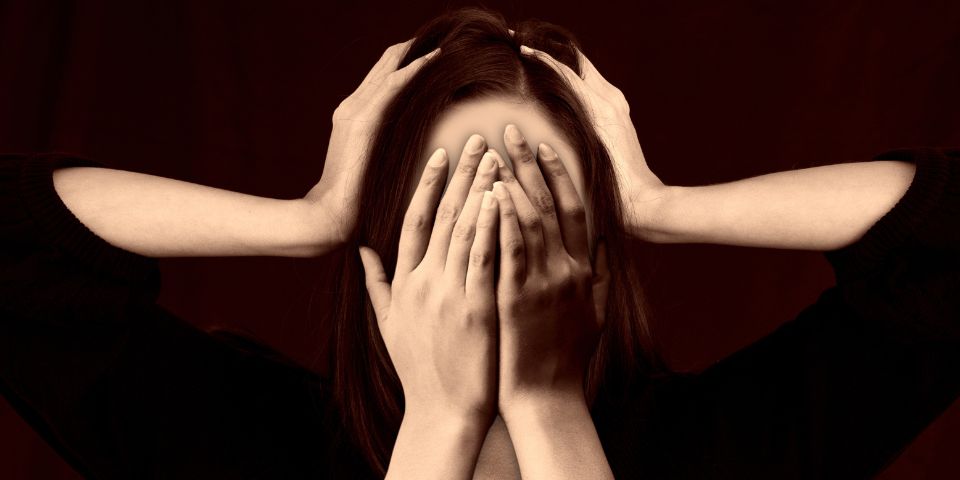Migraine and headaches
Migraine and headaches are extremely common. 19,000 people suffer migraine attacks daily in the UK. 6 million people suffer in the UK alone. Up to 25% of women and 10% of men suffer migraines.
There are 4 main types of headache excluding migraine. These are: sinus, tension, cluster and TMJ (temporomandibular joint).
Tension headaches are very common and most people get them. You can treat them yourself with painkillers but see a GP if you have several headaches a week or they’re severe.
Symptoms of tension headaches include: pain on both sides of your head, face or neck/ feeling like something is pressing on your head or being tightened around it/ the affected area may feel tender and your head may hurt more when touched. You should be able to continue doing daily activities without making the headache worse. Tension headaches last at least 30 minutes but they can last much longer, sometimes for several days.
Common causes of tension headaches include: stress, sleep problems, and caffeine.
Cluster headaches are severe attacks of pain that can last for long periods. They’re not caused by another illness. They can have a real impact on your life, but there are treatments that can help. Cluster headaches are severe headaches that can happen multiple times a day and continue for weeks or months. They may stop for a while (weeks, months or years), or there may be no gap between headaches.
Symptoms of a cluster headache include: a sharp, burning or piercing pain, usually on 1 side of the head, around the eye/ headaches that happen at the same time of year or at set times of the day/ headaches that start and stop quickly, without warning/ pain that can make you feel restless, you may want to walk around or move your body/ headaches that last between 15 minutes and 3 hours
You may also get other symptoms, such as: a red and watering eye on the same side as the pain/ feeling sick/ drooping and swelling in the eyelid on the same side as the pain/ a smaller pupil in the eye on the same side as the pain/ face sweating/ a blocked or runny nose
Temporomandibular disorder (TMD) is a condition affecting the movement of the jaw. It’s not usually serious and generally gets better on its own.
Symptoms of TMD include: pain around your jaw, ear and temple/ clicking, popping or grinding noises when you move your jaw/ a headache around your temples/ difficulty opening your mouth fully/ your jaw locking when you open your mouth. The pain may be worse when chewing and when you feel stressed.
Sinus headaches are when you have a sinus infection or a severely blocked nose which then leads to pressure in the sinuses/face leading to a headache. Unblocking the nose and/or sinuses helps to ease this type of headache.
Migraine headaches are classified separately as the following common symptoms help to distinguish:
- Severe headache which can last from 4hrs – 3 days
- Photophobia
- Can’t stand any level of noise or strong smells
- Nausea which can then lead to vomiting
- Occasionally with Aura. These are things that happen just before the pain of the headache starts. E.g. visual disturbances (flashing lights, zig zag lines, blurred vision), dizziness, vertigo, numbness, pins ‘n’ needles sensations, speech and hearing changes. Not all migraine sufferers experience an aura. Even those that do, only experience some of these symptoms.
Commonly used pain medications for headaches and migraines are NSAIDS e.g. ibuprofen, aspirin etc. Some specific migraine-painkillers have an anti-nausea part added to the tablet. Most sufferers always carry pain killers with them, just in case, as they find this needs to be started as soon as the headache presents. If not, they may find the headache intensifies and continues, instead of the painkiller stopping it in its tracks.
Prescription medication usually starts with a group of drugs called the triptans. These constrict the blood vessels in the head to ease migraine pain.
So what can be done to avoid or treat headaches without drugs? Here are my 9 top tips:
- Eat at regular intervals and stay well hydrated. Often we can get distracted by our busy lives and forget to eat or drink adequately.
- Get plenty of good quality sleep. Go to bed at the same time each day, and wake up at the same time each day. Yes, even at the weekends! Too much sleep can trigger headaches for some people.
- Avoid known triggers e.g. cheese, chocolate, caffeine, citrus fruits, tyramine-containing foods like cured meats, smoked fish, and yeast extract.
- Migraines or headaches can be known side-effects of some medication such as HRT or the contraceptive pill. There may be a pattern to the headaches and keeping a diary can help to identify this. For example, women can experience migraines at certain points in their menstrual cycle.
- Applying diluted peppermint and lavender essential oils to the temples at the start of a headache can help to ease the pain.
- Having a homeopathic kit at home to nip the pain in the bud can really help too!
- Having a hot foot bath for at least 30mins can help ease migraines. Place a cold compress on the forehead and base of neck at the same time. After this time pour cold water on the feet and dry throughly.
- Place 1 drop of frankincense oil on the tip of your thumb and then place this on the roof of your mouth.
- Place 2 tennis balls in a sock and place at the base of your neck, so they cradle your neck on either side with head elevated, whilst you lie down flat. The tennis balls should apply a firm pressure to the base of your neck at the back on either side. Do this for 10mins every hour until them migraine starts to ease.
If you are suffering from chronic headaches, getting your eyesight checked would be a sensible thing to do, so that any vision issues are ruled out. Homeopathy can be a wonderful aid for the pain of headaches and getting to the root cause too.







